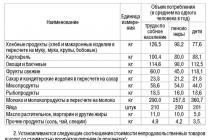"Banking law", 2009, N 5
There are currently approximately 1,200 banks operating in Russia, of which approximately 300 banks have a general banking license. That is, every fourth bank in Russia has a general banking license.
What are the advantages of general banking license compared to other licenses to conduct banking? What additional requirements apply to banks obtaining a general banking license?
The concept of a general banking license
In accordance with Art. 11.2 of the Federal Law of December 2, 1990 N 395-1 "On Banks and Banking Activities" (Law on Banks), a general license is a license to carry out banking operations granting a credit institution the right to carry out banking operations with funds in rubles and foreign currency, attract in deposits cash physical and legal entities in rubles and foreign currency.
For more details, the list of banking operations, the right to which is granted by a general license, is specified in Appendix 18 of Instructions of the Central Bank of the Russian Federation dated January 14, 2004 N 109-I "On the procedure for the Bank of Russia to make a decision on state registration credit institutions and issuance of licenses for banking operations" (Instruction 109-I) and includes the following:
- attraction of funds of individuals and legal entities in deposits (on demand and on certain period);
- placement of funds attracted in deposits (on demand and for a certain period) of individuals and legal entities on their own behalf and at their own expense;
- opening and maintaining bank accounts individuals and legal entities;
- making settlements on behalf of individuals and legal entities, including authorized correspondent banks and foreign banks, on their bank accounts;
- collection of funds, bills of exchange, payment and settlement documents and cash service individuals and legal entities;
- purchase and sale of foreign currency in cash and non-cash forms;
- extradition bank guarantees;
- implementation of money transfers on behalf of individuals without opening bank accounts (except for postal orders).
Benefits of a General License
Why is a general license better than ordinary banking licenses?
It should be noted that the general license has a number of advantages compared to the possession of simple licenses, namely:
- a credit institution holding a general license may, with the permission of the Bank of Russia, establish branches in the territory of a foreign state and, after notifying the Bank of Russia, representative offices<1>;
- a credit institution holding a general license may, with the permission and in accordance with the requirements of the Bank of Russia, have subsidiaries in a foreign state<2>;
- a credit institution may place federal budget funds on bank deposits<3>;
- a credit institution may be admitted to placement temporarily free funds budget of the city of Moscow bank deposits <4>;
- state guarantees Russian Federation on loans attracted by strategic organizations of the military-industrial complex for the implementation of the main production activities and capital investments provided on loans from banks with a general license<5>;
- state guarantees of the Russian Federation for loans attracted by organizations selected in the manner established by the Government of the Russian Federation for the implementation of the main production activities and capital investments are provided for loans from banks that have a general license<6>;
- invest pension savings and savings for housing servicemen in deposits in rubles can credit organizations that have a general license<7>;
- the status of "authorized bank of the Government of Moscow" is possible for banks with a general license<8>;
- the right to service personalized social accounts of citizens in the city of Moscow have banks that have a general license<9>;
- the right to perform the functions of the authorized body of the Department of Finance of the city of Moscow for the verification financial condition recipients of budget loans, ensuring their intended use may have credit institutions holding a general license<10>;
- banks with a general license can participate in the placement of registered blocked target accounts of citizens<11>;
- temporarily free funds of the state corporation "Russian Corporation of Nanotechnologies" can be invested in deposits and certificates of deposit of credit institutions that have a general license<12>;
- temporarily free funds of the state corporation - the Fund for Assistance to the Reform of Housing and Communal Services can be invested in deposits and certificates of deposit of credit institutions that have a general license<13>;
- a credit institution holding a general license may participate in the competition in terms of performing the functions of an agent for the placement of government savings bonds, their redemption, redemption and payment coupon income <14>;
- a credit institution holding a general license may participate in a tender to determine the paying agent for bonds of the state savings loan of the Russian Federation<15>;
- central bank The Russian Federation provides loans to a credit institution that carries out measures to rehabilitate a troubled credit institution, if such a remedial bank has a general license<16>;
- the export of ingots is allowed to credit organizations that have a general license<17>;
- otherwise.
Thus, a general license for banking operations provides opportunities for banks to have the following operations:
- open branches, representative offices and subsidiaries abroad;
- allocate federal and regional budget funds;
- invest pension savings;
- place funds public corporations etc.
As follows from the above, a general banking license grants additional features for the development of the bank's business and therefore is of interest to banks.
What are the requirements for banks obtaining a general license, and what is the procedure for obtaining a general banking license? Are these requirements feasible for banks and is the procedure for obtaining a general banking license too complicated?
Requirements for banks obtaining a general license
General license may be issued to a credit institution that meets the following requirements:
- has own funds (capital) of at least 900 million rubles as of the 1st day of the month in which the application for a general license was submitted to the Bank of Russia<18>;
- has licenses to carry out all banking operations with funds in rubles and foreign currency<19>;
- during the last six months preceding the submission of the relevant application to the territorial branch of the Bank of Russia, and also before the Bank of Russia makes a decision to expand the activities of the credit institution, the credit institution must<20>:
- comply with federal laws and regulations the Bank of Russia requirements to provide information about participants and their groups (affiliates), which makes it possible to unambiguously identify persons (including those who are not members of a credit institution) who are able to directly or indirectly (through third parties) determine decisions made by the management bodies of a credit institution;
- not have debts to the federal budget, the budget of the corresponding subject of the Russian Federation, the corresponding local budget and state off-budget funds;
- have organizational structure(including service internal control) adequate to the scale of operations carried out by the credit institution and the risks assumed;
- comply with the qualification requirements established by federal laws and regulations of the Bank of Russia for members of the board of directors (supervisory board) and heads of a credit institution;
- comply with mandatory reserve requirements Bank of Russia and not have overdue monetary obligations before the Bank of Russia;
- belong to classification group I or classification group II in accordance with Bank of Russia Ordinance N 2005-U;
- comply with the requirements set federal law"On insurance of deposits of individuals in banks of the Russian Federation"<21>.
Thus, as follows from the above, Russian legislation does not impose any unrealistic requirements on credit institutions that wish to obtain a general banking license.
The procedure for obtaining a general license
A general license for banking operations may be issued to a bank, from the date of state registration of which at least two years have passed<22>.
<22>See: article 14.4 of Instruction 109-I.
In order to obtain a license expanding its activities, a credit institution must submit the following documents to the territorial office of the Bank of Russia supervising its activities:
- a petition signed by an authorized person;
- published annual report certified audit organization, and a duly certified copy of the auditor's report for the year preceding the credit institution's application for a license expanding its activities (if these documents have not been previously submitted to the territorial branch of the Bank of Russia);
- the business plan of the credit institution or, in the cases provided for by Bank of Russia regulations, amendments and additions to the business plan;
- confirmation of the authorized bodies on the absence of debt of the credit institution to the federal budget, the budget of the relevant subject of the Russian Federation, the relevant local budget and state extra-budgetary funds<23>.
When considering the issue of issuing a general license to a bank, it conducts a comprehensive audit in the manner prescribed by the regulations of the Bank of Russia, or takes into account the results of a comprehensive audit if it was completed no earlier than three months before the submission of an application for issuing this license to a territorial institution Bank of Russia<24>.
<24>See: Article 14.3 of Instruction 109-I.
Territorial institution of the Bank of Russia for ninety calendar days from the moment of receipt of the documents, reviews them and sends to the Bank of Russia (Department for Licensing Activities and Financial Recovery of Credit Institutions of the Bank of Russia) an opinion on the possibility of issuing a license to a credit institution expanding its activities<25>.
<25>See: article 14.7 of Instruction 109-I.
Based on the documents received, the Bank of Russia makes a decision on the possibility of issuing a license to a credit institution specified in its application<26>. In the Bank of Russia, this issue is referred to the competence of the Committee banking supervision <27>.
<26>See: article 14.9 of Instruction 109-I.
<27>See: Regulations on the Banking Supervision Committee of the Bank of Russia (approved by the decision of the Board of Directors of the Central Bank of the Russian Federation of August 10, 2004, Minutes No. 21).
* * *
As can be seen from the above, a general banking license provides a number of significant benefits to banks that have such a license. At the same time, the procedure for obtaining such a license and the list of requirements for banks are feasible for banks that, through a general banking license, can expand the range of their operations.
The article explains in detail the essence of a banking license, describes its types, and the procedure for obtaining it.How useful is this information to borrowers and savers? How to check if the activity of a financial institution is licensed, or if the bank has been declared bankrupt? You will receive answers to these and other questions from the article.
A license is an official government permit that allows a banking organization to:
- issue loans;
- take funds from the population for placement on deposit;
- carry out foreign exchange transactions, etc.
A license is required for any bank to legally financial activities. Otherwise, he does not have the right to conduct monetary transactions. The document must also indicate the currency with which the credit institution can work. The bank receives a license after state registration.
If an organization conducts banking activities without state permission, for this the following responsibility is provided:
1. For legal entities:
- recovery in full of funds that were received in the course of operations;
- fine in federal budget. Its magnitude is double size the amount that the institution received during the illegal work;
- liquidation, but this requires the appeal of the Central Bank with a corresponding lawsuit to the court.
2. For individuals - criminal or civil liability.
In Russia, the Central Bank is responsible for issuing licenses. He publishes information on them in the Bulletin of the Bank of Russia. It also reflects any changes related to the receipt and withdrawal of permits. This information is also available on the official resource of the Bank of Russia.
The validity of the license is perpetual, not limited by time frames. Having permission to carry out financial transactions, the organization can receive additional empowerment. Which transactions the bank is entitled to and which are not, is indicated in the license document. There are several types of them.
Types of bank licenses
 Those that are issued to newly created organizations:
Those that are issued to newly created organizations: - For financial transactions in rubles. At the same time, deposits from individuals cannot be accepted.
- To attract money from the public in order to keep them on a ruble deposit. An institution can issue such a license simultaneously with the previous one.
- For transactions in rubles and foreign currency. The bank cannot take funds for placement on deposit under this license.
- For reception and storage Russian rubles and foreign currency. It is available to the bank to receive this document in parallel with the previous one.
- For deposits and storage of precious metals. Such a permit is allowed for a credit institution to issue along with a license for operations in rubles and foreign currency.
Also, some of the listed types of licenses can be obtained by an already functioning bank in order to expand its activities. These are the permissions for:
- storage of precious metals;
- operations in rubles and foreign currency (at the same time, the bank can cooperate with any number of foreign correspondent banks);
- placement of household deposits in rubles;
- attracting deposits in rubles and foreign currency (the bank must already have permission for foreign exchange transactions for this).
To obtain all licenses that allow attracting investors, the following prerequisites are mandatory:
- The institution meets the conditions for participation in the deposit insurance system.
- At least 2 years have passed since the state registration of the bank. If this period is less, then the organization must:
- have a capital of at least 100 million euros, but only in ruble terms;
- provide the Central Bank with information on persons who directly influence the adoption of key decisions in the institution.
 In addition, a bank that plans to obtain any additional licenses must comply with such general requirements:
In addition, a bank that plans to obtain any additional licenses must comply with such general requirements:
- Do not be a debtor to the budgets of any levels (local, federal, etc.).
- Do not have delays before the Central Bank.
- To be a financially stable organization in accordance with the criteria of the Bank of Russia.
- Comply with all the requirements of the Central Bank: both qualifying and technical (for example, relating to banking equipment).
These conditions must be met by the bank for at least six months before applying for an extended license.
Another type of document issued by well-established banks is a general license.
What are the features of the general bank license
This document does not expand the list cash transactions which the bank is entitled to make. It creates additional possibilities. An institution holding a general license has the right to:
- Create branches abroad.
- Buy shares/stakes in the authorized capital of banks in other countries.
It is permissible to obtain this permission for a credit institution that:
- Registered for at least 2 years.
- It owns licenses that give it the right to perform all operations with rubles and foreign currency. At the same time, the bank may not have permission to conduct transactions with precious metals.
- Fulfills the requirements of the Central Bank regarding the amount of capital. As of the 1st day of the month in which the bank wishes to obtain a license, the amount own funds should be at least 900 million rubles.
- Complies with the conditions that the Central Bank of the Russian Federation puts forward for banks to obtain additional permits (listed earlier).
An institution can operate without a general license. However, its presence indicates that the bank is developing. Many large and medium-sized banks have this document (Promsvyazbank, Rosselkhozbank, Sberbank of Russia, UniCreditBank, etc.).
How to get a bank license
To become a license holder, a newly created credit institution submits the following documents to the Bank of Russia:
- an application containing an application for state registration and issuance of a license;
- originals or notarized copies of the memorandum of association and articles of association;
- minutes of the meeting with the participation of the founders and a list of these persons;
- organization business plan. The procedure for compiling and the criteria by which it should be evaluated are established by the Central Bank of the Russian Federation;
- questionnaires of candidates applying to become the head of the organization, chief accountant and deputies;
- documents that testify to the payment of the fee for state registration and license;
- copies of documents evidencing the state registration of the founders of the credit institution;
- conclusions from auditors that confirm the reliability of the financial reports of the founding legal entities;
- documentary confirmation of the sources of funds contributed by the individuals who created the organization,
- notarized copies of documents confirming the ownership (or lease) of the founders of the building of the future bank;
- papers for issuing an opinion on whether the institution meets the conditions for conducting cash transactions;
- copy of the document from antimonopoly service on consent to the creation of a credit institution (if provided for by federal law).
In order to expand their powers and become holders of additional licenses (including the general one), banks submit the following documents to the Central Bank of the Russian Federation:
- relevant request;
- business plan or additions to it;
- a receipt or "payment" confirming the payment of the license fee;
- published report for the year, certified by auditors, and an opinion from them for the past 12 months.
A bank applying for a general license must be prepared for a comprehensive review. According to the schedule, it is held every two years. If less than 3 months have passed since the last audit before the application was submitted, there will be no re-audit.
Also, the organization itself has the right to apply to the Bank of Russia (to the territorial division) with a request for a comprehensive audit.
The procedure for issuing a license to a bank
If the license is primary, then the procedure consists of the following stages:
- The founders of the organization submit the necessary documents to the Central Bank. In return, they receive a written confirmation of acceptance of the papers.
For the fact that the Bank of Russia will consider the issue of issuing a license, the financial institution pays a fee. Its value cannot be more than 1%. authorized capital organizations. The funds replenish the federal budget.
2. Within a period not exceeding 6 months, the Central Bank either issues a license to a bank or refuses it.
3. If the decision is positive, the credit institution is first entered into the Unified State Register of Legal Entities. This is done by the relevant registering authority within 5 days after receiving the documents from the Bank of Russia.
 4. The Central Bank of the Russian Federation, within 3 days after registration, notifies the founders that their organization has been entered in the register. The Central Bank also informs them about the requirement to pay within a month 100% of the authorized capital (the sum of contributions of all founders). The bank receives a document confirming the registration.
4. The Central Bank of the Russian Federation, within 3 days after registration, notifies the founders that their organization has been entered in the register. The Central Bank also informs them about the requirement to pay within a month 100% of the authorized capital (the sum of contributions of all founders). The bank receives a document confirming the registration. 5. The organization contributes the amount of the authorized capital and submits the relevant documents to the Central Bank. After that, within 3 days, she receives a license.
Steps for issuing an additional license:
- The bank submits documents (according to the list) to the territorial branch of the Central Bank of the Russian Federation.
- There, within 2 months, they prepare a written opinion on whether to satisfy the request of the credit institution. It contains information about the audit, evaluation of the business plan, etc.
- The local branch of the Bank of Russia transfers the documents of the organization and the conclusion to the head office of the Central Bank. He decides the fate of additional licenses.
- The Central Bank of the Russian Federation, within 5 days, transfers information about the bank's licenses to the appropriate registration authority.
- The territorial branch makes an entry on the issuance of a license to the bank in the register. The credit institution receives its copy of the authorization document.
How to check if a bank has a license
To help citizens - the website of the Central Bank of the Russian Federation. In the "Reference book of credit organizations" section, any user will find the following information about the institution (it is necessary to enter the license number of the bank or its name for this):
- date of registration;
- address and telephone;
- the size of the authorized capital;
- list of licenses;
- a mark on participation in the deposit insurance system;
- information about branches;
- financial reporting, etc.
Obtaining a license number is available on the website of the organization or you can find it at the branch. A copy of the authorization document in the institution will be issued at the request of the client.
This information is also freely available on the website of the Central Bank. Go to the section "Information on credit institutions", then - "Liquidation of credit institutions". Number of banks deprived of licenses in 2015 – 51 (as of 08/19/2015).
The main reasons for banking operations:
- unsatisfactory financial activity;
- non-compliance normative documents and federal laws;
- low capital adequacy (less than 2%), etc.
The Central Bank of the Russian Federation also has the right to revoke a license from an organization that does not provide reporting documentation on time or provides inaccurate information.
- From the source of the Central Bank of the Russian Federation - the Bulletin of the Bank of Russia. Information is published approximately one week after the license is revoked.
- From the media. Most often, news portals and newspapers find out this information on the same day that it is published by the Bulletin of the Bank of Russia.
- By visiting the website of the Central Bank, section "Reference book on credit institutions".
4. On the official Internet resource of the bank itself.

A credit institution planning to engage in legal transactions that do not contradict the fundamental Law of the Russian Federation is obliged to obtain for this special license at the Bank of Russia. Issues related to the registration of credit organizations and licensing of banking activities are regulated by national legislation.
And this article is designed to help you understand such issues as the types of banking licenses, obtaining such a business permit, as well as the possibility of applying sanctions in case of violation of the established regime.
The need for licensing banking activities
Since the functioning of banks and their work affects the economy of the country and concerns property interests unlimited number of persons, the state puts forward strict requirements for banks. So it takes under its own control the security of society (depositors, clients and the state).
Permission to banking practice can only be received by a legal entity, namely: an established individuals credit organisation.
Permissions are of two types, but the common thing for them is the prohibition to use for deposits financial resources individuals.
- Permission to trade in domestic currency.
- Deal resolution in any currency.
Types of licenses for banking activities
Each of the licenses, which is issued for the right to carry out banking activities, describes in detail the types of operations permitted.
Scroll required documents and the procedure for registration and licensing of banking activities are described below.
The video below will tell you more about banking licensing:
List of required documents
The Central Bank requires a prepared package of documents to consider an application for obtaining a legitimate permit. The applicant, a legal entity, fills out an application according to the approved model. And attaches to it a clear set of documents:
- original documents on the establishment of the organization;
- full ;
- each founder must attach a certified copy of his confirmation;
- signed and certified by the seal (individuals);
- detailed profiles of people applying for key positions: manager, Chief Accountant, substituents;
- ready business plan;
- receipt of payment of state duty (no more than 1% of the declared authorized capital) to the state budget;
- confirmation of the audit on the legal sources of funds contributed by the founders;
- documentary basis for the conclusion that cash transactions are fulfilled according to all requirements;
- a copy of the permission of the antimonopoly committee for education credit structure;
- required to be entered in the register of the first issue of shares (which involves additional documents) and the subsequent report on the results of this issue;
- must be 100% paid, in support of which documentary evidence is attached.
Submission of the application starts the next steps of the procedure.
Read below about the validity period of a banking license and the procedure for obtaining permission for it.
Permit procedure
 So, get a banking license?
So, get a banking license?
A number of normative acts determine the licensing regime, which obliges credit institutions to obtain an appropriate permit. Specific resolution provides a clear list of legitimate banking activities.
The procedure for obtaining a license (perpetual permit) for banking activities in Russia is very laborious and lengthy. There is a practice of buying and selling ready-made credit organizations or.
- If the Central Bank of the Russian Federation accepts the above documents, it confirms this in writing to the founders.
- From the moment of confirmation, the process of their consideration, study, verification begins, as a result of which the final conclusion is made. The law allocates a six-month period for this, which the Central Bank has no right to exceed.
- The next stage: The Bank of Russia sends a package of the credit structure for registration in the Unified Register. This is the responsibility of the competent authority. Five days are allotted for inclusion in the list by law, followed by notification of the Bank of Russia.
- After that, the Bank of the Russian Federation has three days to inform and document this information to the founders
- The founders must pay within a month one hundred percent of the declared authorized capital (otherwise, in judicial order this legal entity is liquidated).
The license allows you to proceed to the transactions and operations prescribed in the permit legally.
Decision on state registration of any financial organization accepted by the Central Bank of Russia. As soon as information about the bank gets into single register, he is obliged to inform about any changes that occur. The license for banking operations is also issued by the Central Bank of the Russian Federation.
Definition
First, let's clarify what is included in the concept of "license". A license is a special permit issued by authorized bodies in the form of an official document with a specific content, form and validity period.
If we take the above definition as a basic one and supplement it with excerpts from Chapter 2 of the Banking Law, we get the definition of a license to carry out
A banking license is a special permission from the Bank of the Russian Federation to carry out banking activities in the form of an official document giving the right to a financial organization to carry out the banking operations specified in it without time limits.
Types of licenses
For newly minted banking organizations The following types of licenses are available:
- a license to carry out banking operations with funds in rubles (without the right to attract funds from individuals in deposits);
- for the execution of operations with funds in ruble equivalent and foreign currency (without the ability to attract funds from individuals in deposits);
- to attract cash deposits and placement of precious metals (this license is separate from the license for the execution of transactions with money);
- to attract funds from individuals in deposits (in national currency);
- to attract funds from individuals in deposits in national and foreign currencies;
- for the execution of transactions with funds in ruble equivalent or with funds in foreign and national currencies for settlement non-banking financial institutions;
- for the execution of operations with funds in ruble equivalent or with funds in national and foreign currencies for settlement non-banking financial institutions that conduct deposit and credit operations.

A banking license is issued for:
- involvement in deposits and placement of precious metals;
- involvement in deposits of individuals in the national currency;
- involvement in deposits of individuals' funds in national and foreign currencies.
A separate type of license is considered a general one.
General license
Such a banking license is issued to those financial institutions that have received permission to perform all transactions and meet the requirements for the amount of their own funds.
At the same time, a license for the placement of precious metals is not required to obtain a general license. An organization that has such a license and funds in the amount of 180 million rubles or more can create branches and representative offices in foreign countries with the permission of the Central Bank of the Russian Federation. Also, such banks may, in accordance with the requirements of the Central Bank of the Russian Federation, create subsidiaries.
A general license for banking operations is issued for a period of unlimited years.
Issuance conditions
The document can be issued only after state registration and in the manner prescribed by law and those regulations adopted by the Central Bank. The license for banking operations contains an indication of what currency the bank will work with, whether funds will be attracted to deposits, as well as the possibility of placing precious metals.
In order for the issue of issuing a license to be considered, a commission of 1% of the authorized amount is charged. This money goes to the treasury of the federal budget.

The issued license must be included in the list of issued licenses. The Bank of the Russian Federation must publish such a list in the Bulletin of the Central Bank of the Russian Federation at least once a year. In this case, all appearing changes and additions must be made to the register no later than one month from the date of their adoption.
The license must contain information about the banking operations for which the given financial institution is entitled, as well as information about the currency with which the bank is entitled to work. A banking license is issued for an indefinite number of years. In other words, it is indefinite.
Work without a license
Based on the fact that licenses for the implementation of bank guarantees are issued by the Central Bank of Russia, doing business without this document will entail fines and penalties in the amount of all profits that the organization has received during its work. In addition, a legal entity operating without a license will be required to pay a fine to the federal budget in the amount of two times the amount received in the course of work.
Collections and fines are made through the court at the request of the prosecutor or the Central Bank.

The Central Bank has the right to draw up a claim for the liquidation of a legal entity operating without a license and carrying out financial operations. Such organizations bear administrative, civil, legal, as well as criminal liability. At the same time, the term for which a license for banking operations is issued is reduced until the moment the license is revoked.
Obtaining a license
To obtain a license, a financial institution must collect and submit the following documents:
- Application for state registration. This application must contain the full details of the financial institution, as well as the executive body, through which you can communicate with the bank.
- This document provided if required by federal law. You must provide either the original or a certified copy.
- Articles of association. Original or certified copy provided.
- Business plan. The concept of work is developed and approved at the meeting of the founders. The document contains information on candidates for the positions of the head and chief accountant, as well as on the approval of the charter. Drawing up a business plan is focused on the standards of the Central Bank of the Russian Federation.
- Confirming document confirming the payment of the state duty, as well as the license fee.
- Documents on state registration of founders. This includes: an auditor's report on the veracity of the information provided financial reporting, the confirmation tax office on the fulfillment of obligations to the federal and local budgets for 3 years.
- Supporting documents on the origin of statutory funds.
- Questionnaires of candidates for the position of head, chief accountant, deputies and similar positions in the branches of the organization. These questionnaires must contain all the necessary information: full details, education status (legal or economic), management experience in a similar field, criminal record. Questionnaires must be written by hand.
The Bank of the Russian Federation upon receipt of all documents issues a written receipt.
Decision making by the Bank of the Russian Federation
The decision on state registration and issuance of a license is made within six months after the date of submission of all necessary documents.
After the bank makes a decision on the state registration of a financial organization, it sends all information about it to the authorized body, which will enter the information into a single list of legal entities.
Based on the decision and the submitted documents, within five days, the organization enters the unified state register of legal entities. The next day, this information must be provided by the Central Bank of the Russian Federation. And he, in turn, reports within 3 days this information founders of the organization.

Further, the founders are obliged to pay 100% of the declared authorized capital within a month. After that, the financial institution receives a document confirming the fact of state registration. Immediately after the state registration of the organization, a license for banking operations is issued. For what period is it issued? The Central Bank of the Russian Federation does not limit the terms of the license.
Obligations of the Bank of the Russian Federation upon recall
The Bank of the Russian Federation revokes the license if:
- the value of the authorized capital is reduced to 2%;
- the amount of own funds of a financial organization is below the minimum threshold of the authorized capital, accepted by the bank RF on the date of state registration of the organization;
- the financial organization ignores the requirement of the Central Bank to bring the amount of capital and own funds back to normal;
- the financial organization cannot satisfy the requirements of creditors and fulfill its obligations on mandatory payments.
Grounds for withdrawal
A banking license may be revoked if:
- There were reasons to believe that the information provided, on the basis of which the document was issued, was invalid.
- The start of operations has been delayed by more than one day.
- Facts of inaccurate data have been established.
- Monthly reporting is delayed by more than 15 days.
- The financial institution carries out activities not covered by the license.
- During the year, a financial institution violates the rules prescribed by federal law and regulations of the Central Bank.
- There have been repeated failures to comply with the perpetrators established by the court claims for the recovery of funds.
- There is a petition from the interim administration, created on the basis of the Federal Law "On the insolvency of financial organizations."
- The Central Bank has repeatedly failed to provide updated information that is necessary for inclusion in the state register.

Other grounds on which the license was revoked are considered invalid. The decision of the Bank of the Russian Federation to withdraw comes into force after the adoption of the act and can be appealed within a month from the date of its publication in the Bulletin.
What happens to the bank after the recall
The license for banking operations is issued by the Central Bank of the Russian Federation, and it is also revoked by it. After the recall, the financial institution must be liquidated. Also at the financial institution after the recall:
- the deadline for the fulfillment of obligations;
- the accrual of penalties on obligations is terminated;
- the work of documents on property surveys is suspended (except executive documents issued on the basis of the collection of wage arrears, payment of remuneration, alimony and other payments), issued on the basis of court hearings and entered into force until the license was revoked;
- the activity of a financial organization in the form of concluding transactions or fulfilling obligations (except for transactions regarding utility and maintenance payments, as well as payment of benefits) is prohibited until the appointment of a liquidation commission or a bankruptcy trustee.

License return
A financial institution whose license has been revoked by the Central Bank of the Russian Federation may regain the status of an organization that carries out banking operations. To do this, the revocation of the license is challenged in court. And if the court session makes a positive decision, the Central Bank of the Russian Federation will return the license to the organization. And it is worth noting that in judicial practice such issues are resolved quite often, and in favor of banks.
In addition, the Central Bank may return the license on its own initiative. This happens after financial institution will correct all violations that were found during the checks.
License term
A license to carry out banking operations is issued for an unlimited period of time. A financial institution may carry out all types of activities specified in the license until such time as it is revoked by the Central Bank of the Russian Federation or itself ceases to operate.
Only one date can be found in the license form - the date of issue of its financial institution. Every year, the Central Bank conducts inspections that are aimed at the execution of the types of activities prescribed in the license.














